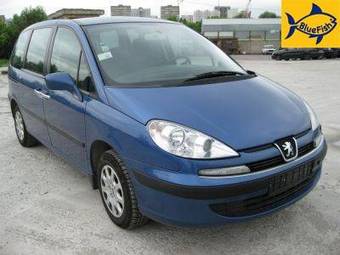2004 Peugeot 807
Photo #1

Photo Information (Width: 340px, Height: 255px, Size: 15Kb)
| Engine size - Displacement - Engine capacity: | 2000 cm3 |
| Transmission Gearbox - Number of speeds: | Manual |
| Price (out of date): | $16166 |
2004 Peugeot 807 specs, Engine size 2.0, Transmission Gearbox Manual
|
The common French pronunciation of "Peugeot" is IPA:[pøːʒo]. In Spain, it is "peyot" (less often, "peuyot"). In the UK (where the cars are occasionally nicknamed 'pugs'), it is usually pronounced / ˈpɜːʒoʊ/ "PERzho" (as per company advertising), although the most common pronunciation in Scotland is "Pyoozhoh", whilst Americans pronounce it / puːˈʒoʊ/ "pooZHO" or / ˈpjuːʒoʊ/ "PYOOzho". In Malta, some people pronounce "Peugeot" as "poo goo". In those parts of North Africa colonised by France—Algeria, Tunisia and Morocco—"Peugeot" is often pronounced in the same as "bijou" ("jewel"), both because of the sometimes indistinguishable quality of vowels in Arabic when translated into French, and through affection. Early historyThe Peugeot family of Valentigney, Montbéliard, Franche-Comté, France, began manufacturing coffee grinders in the 1800s. Although the Peugeot factory had been in the manufacturing business since the 1700s, the company's entry into the world of wheeled vehicles was by means of crinoline dresses, which used steel rods, leading to umbrella frames, saw blades, wire wheels, and ultimately bicycles. Armand Peugeot introduced his "Le Grand Bi" penny-farthing in 1882 and along with a range of other bicycles. Peugeot bicycles continued to be built until very recently, although the car company and bike company parted ways in 1926. » Read More About Peugeot |










